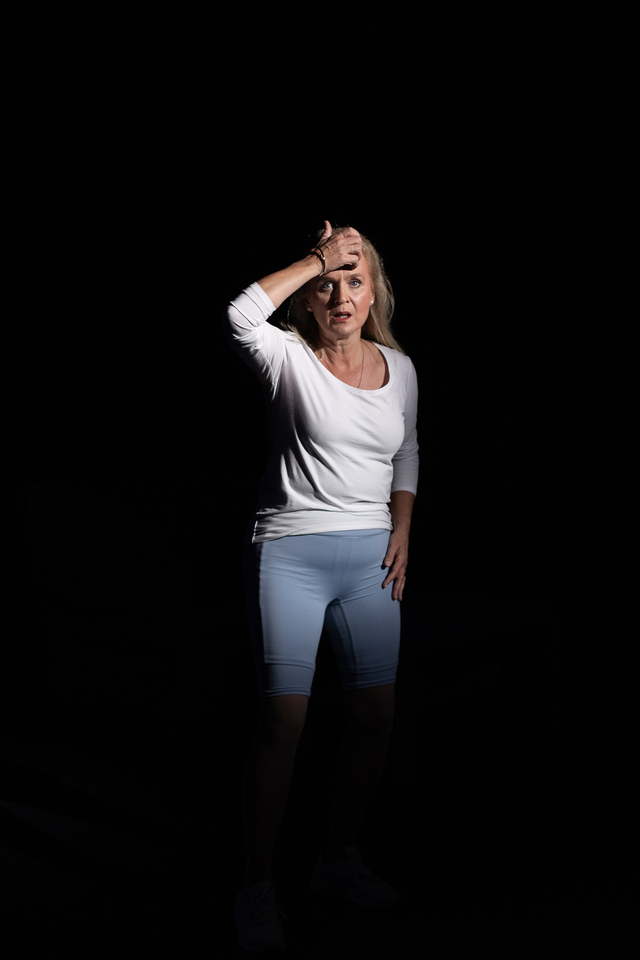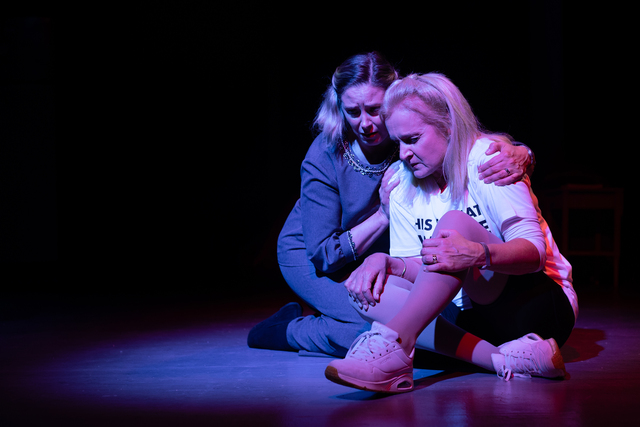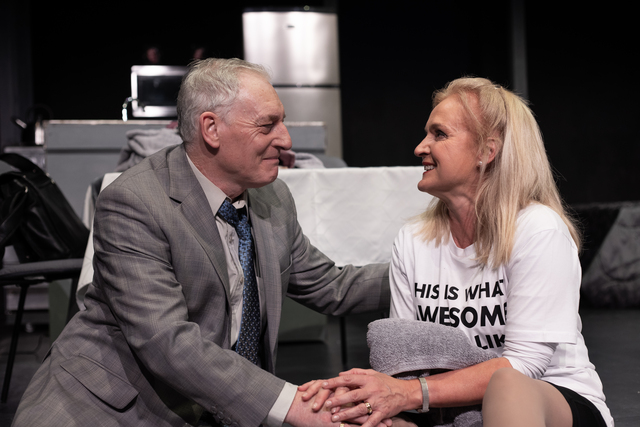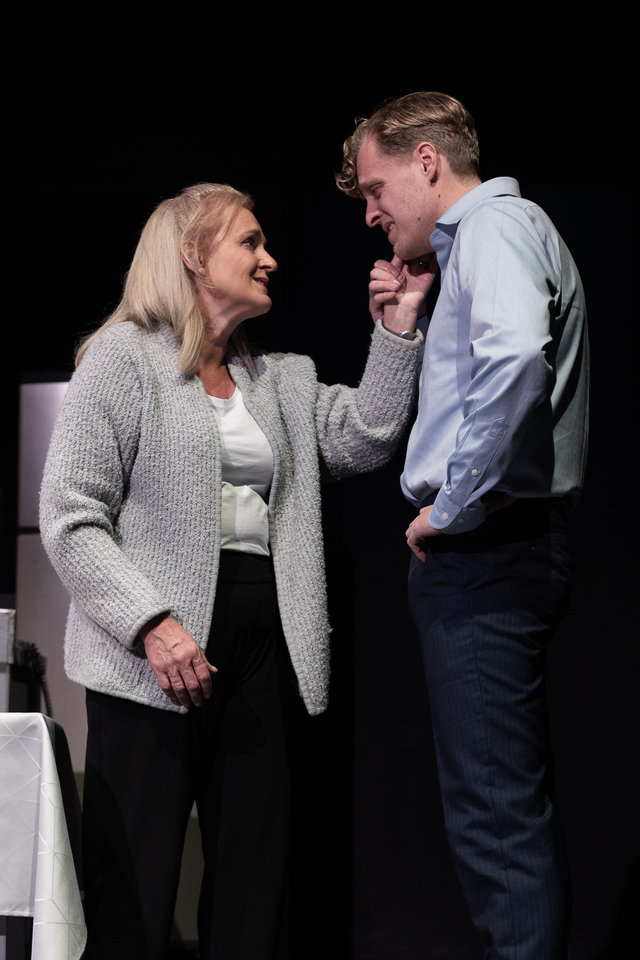By Mikayla van Loon
Powerful, captivating performance paired with the real life complexities of a dementia diagnosis has been brought to life by the Lilydale Athenaeum Theatre Company.
For its second season, the Company has produced the first Australian showing of Still Alice, an adaptation of the Lisa Genova book.
Director Alan Burrows and lead actress Angela Glennie have both been touched by dementia in their personal lives, with Glennie saying “it’s been a bit of a passion project for the two of us”.
Bringing it to the stage now, Burrows said he would like to see the audience walk away with a “greater understanding” of the reality of dementia.
Having wanted to perform this play in 2020, the Covid lockdowns prevented the Company from doing so but it was also a time when it was quite “raw” for Burrows and Glennie.
Burrows’ wife Christine had, at the time, only just been diagnosed with dementia and Glennie’s father had died not too many years before from the disease.
“We put it aside and it was a bit raw at the time. But with the progression of time, I’ve come to come to terms with the situation,” Burrows said.
After just the opening night on Thursday 18 April, Glennie said the profoundness of the play became evident, not only as an actor but for the audience as well.
“[Alice] says to her daughter in the second scene, ‘I love speaking, you know, all the concatenated moments, teaching, telling a story provoking debate, the adrenaline of performance’,”she said.
“Obviously you can see what an actor would pull from that because that’s why we do it. We love to tell our stories. We love speaking in front of people and there is always an adrenaline rush when you’re performing. It’s quite addictive.
“Not necessarily does it provoke debate, but the show has provided discussion among audiences. Also I had audience members wanting to share with me their stories of similarity, of connection of their experiences with people with dementia.”
Glennie said the play is another attempt at bringing the conversation around dementia into the light.
“Dementia, Alzheimer’s is not a happy topic, but it’s often kept in the dark and in silence, and often not spoken about or only spoken about when you’re living it, when you’re supporting someone,” she said.
“People are now comparing stories, and building connection and support and healing because of what the play has done.”
Not only is it the words, actions and experiences presenting what dementia looks and feels like for the individual and family members but Burrows said in working with set designer David Dare, the production “exemplifies what happens with a person who has dementia”.
“Everything is in shades of grey, going to black. There’s no colour on the set, except for the actors’ costumes,” he said.
“As the play progresses, the set gradually disappears. So in the end, when we get to the final scene, there is only Alice and her husband and herself, and two chairs on the stage, otherwise, it’s completely blank.
“So it gives that feeling, hopefully, of a world closing in around a person who actually suffers with Alzheimer’s.”
Despite the shades of grey, Glennie said “there’s laughter and these typical family dynamics in the play and there are some really beautiful moments”, it’s a “hopeful play”.
In yet another special onstage appearance, Glennie and her son Lachlan are performing as mother and son, in what she described as a sometimes challenging partnership but with their experience of dementia in their own lives, “it’s almost a comfort that there’s a commonality around”.
As director, Burrows said everyone involved in the play has embraced the importance of its subject, especially the cast.
“The cast is terrific. It’s one of the best casts I’ve ever had in a play at Lilydale. They’re all right for the parts,” he said.
For an hour and a half non-stop, Glennie said the role of Alice has been “a journey” to learn and perform, particularly in working with Audrey-Maeve Barker who plays Alice’s thoughts as a narrating character.
“We’ve had to be synchronised not in a forced way but there will be head turns that happen on a particular cue. There will be looks and we don’t look at each other necessarily, she’s shadowing me, but she’s aware of what my body is doing,” she said.
“That adds another very interesting element and something I’ve never done before.”
A complex show of important discussion but also of actor ability, Still Alice is being shown until Saturday 4 May.
Information on dementia and care has also been supplied by Caladenia Dementia Care which will be situated in the foyer of theatre each night.
To book, go to latc2020.sales.ticketsearch.com/sales/sales or call 9735 1777.










